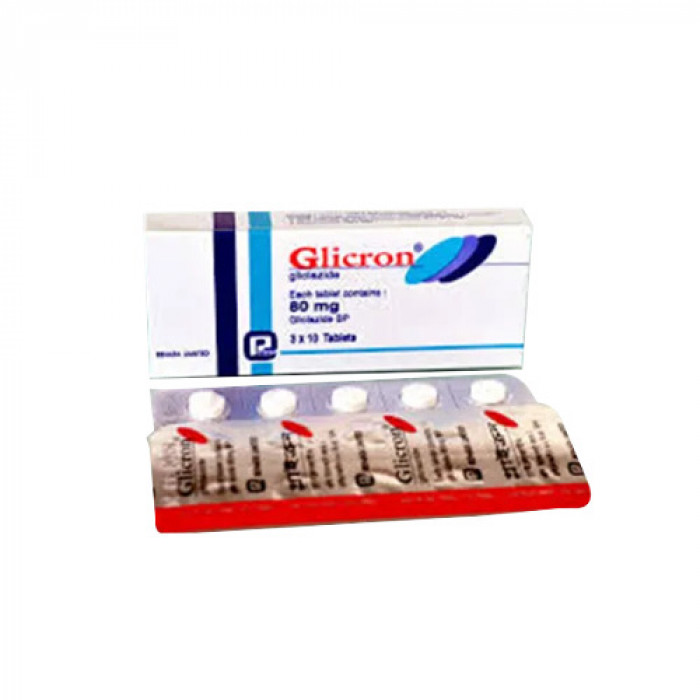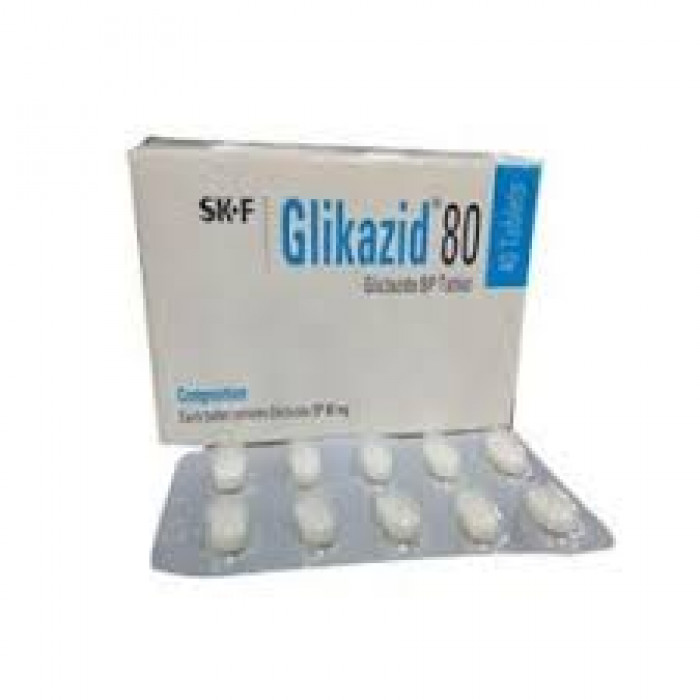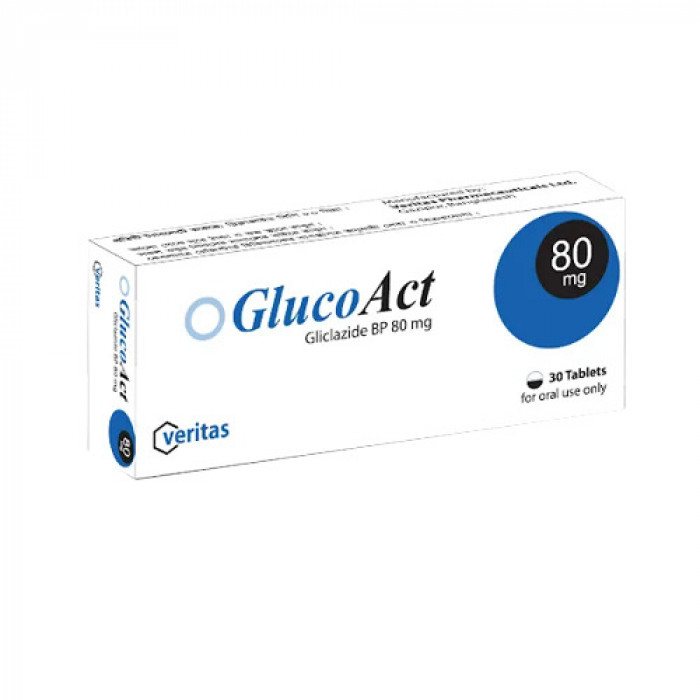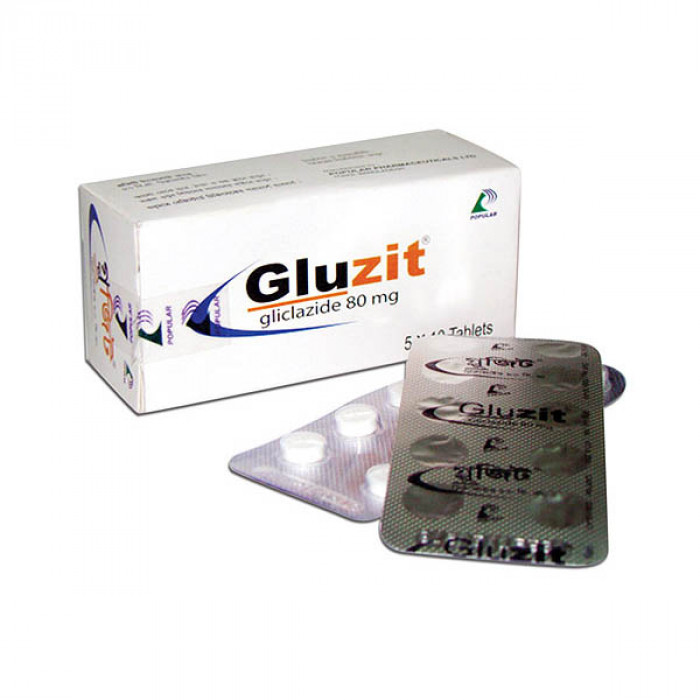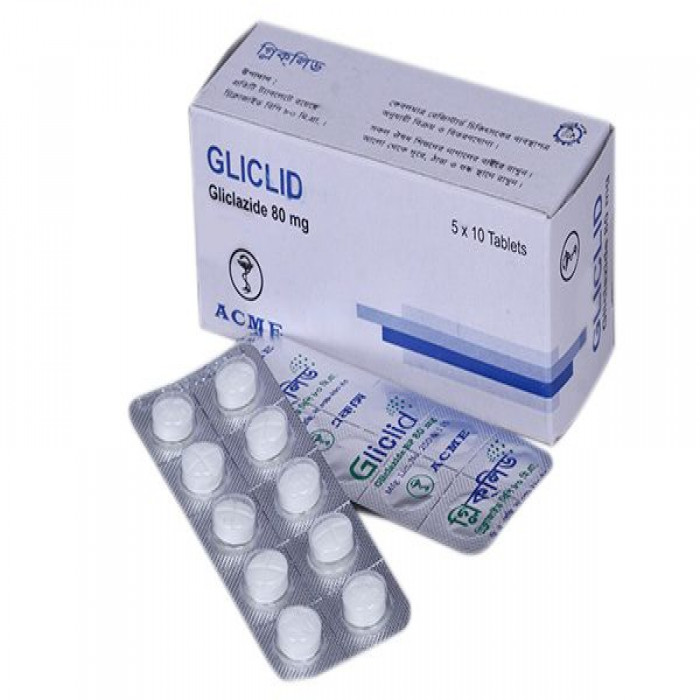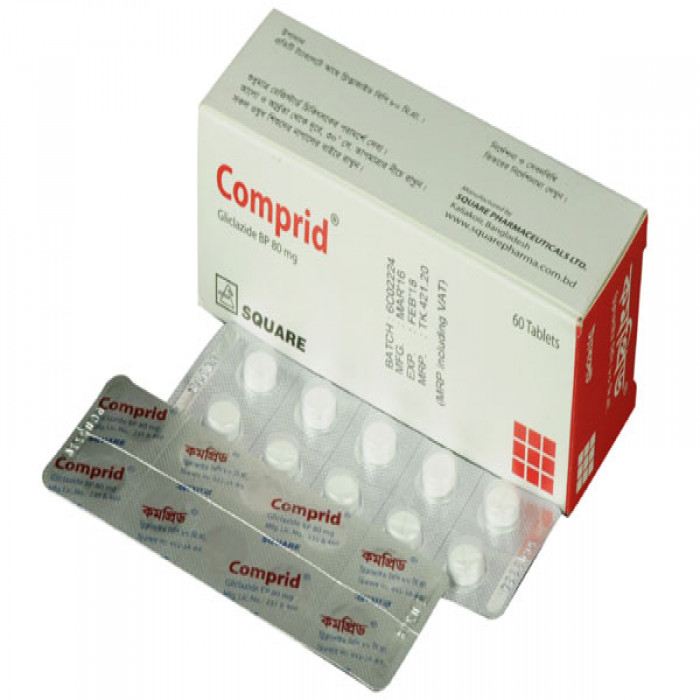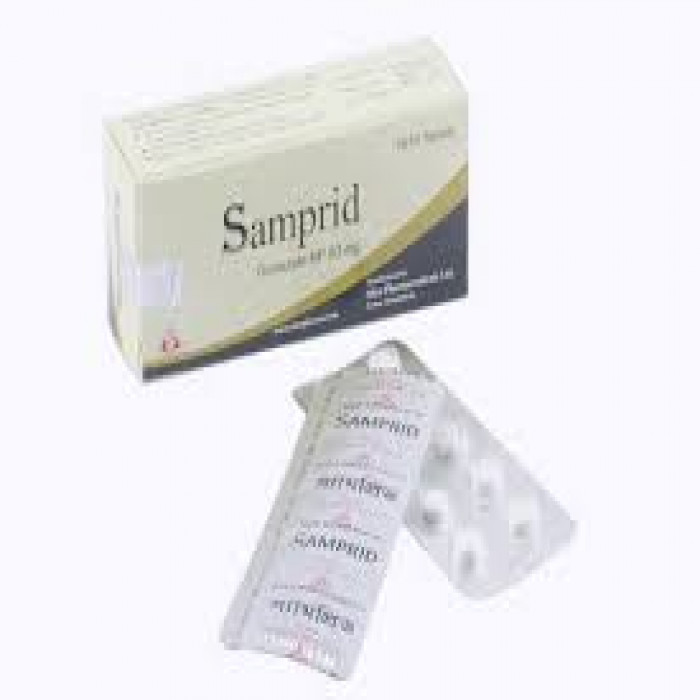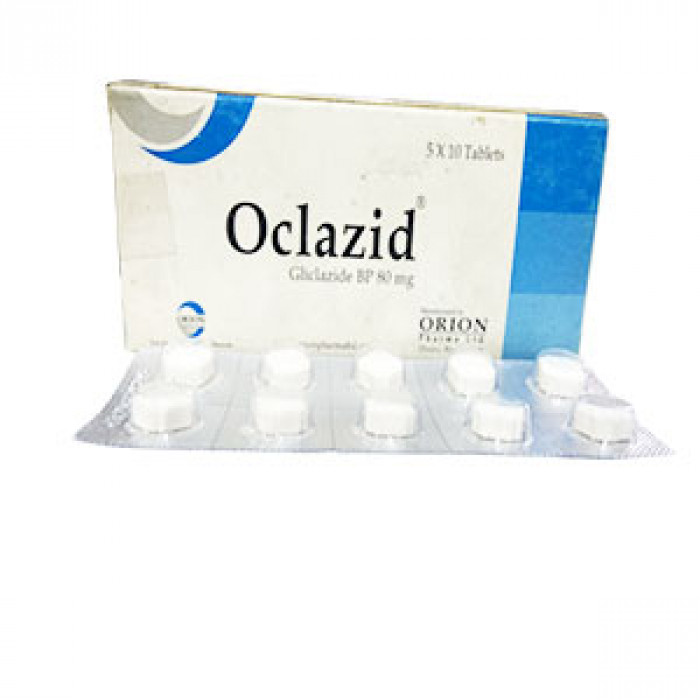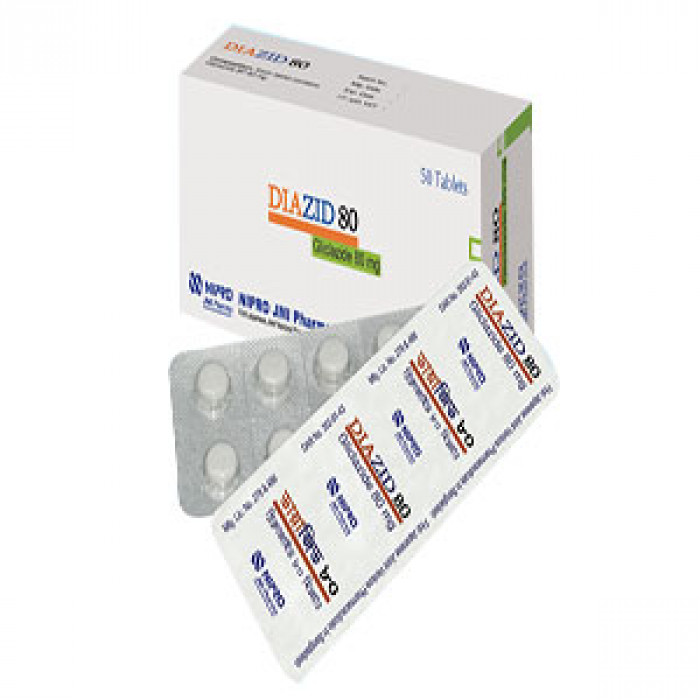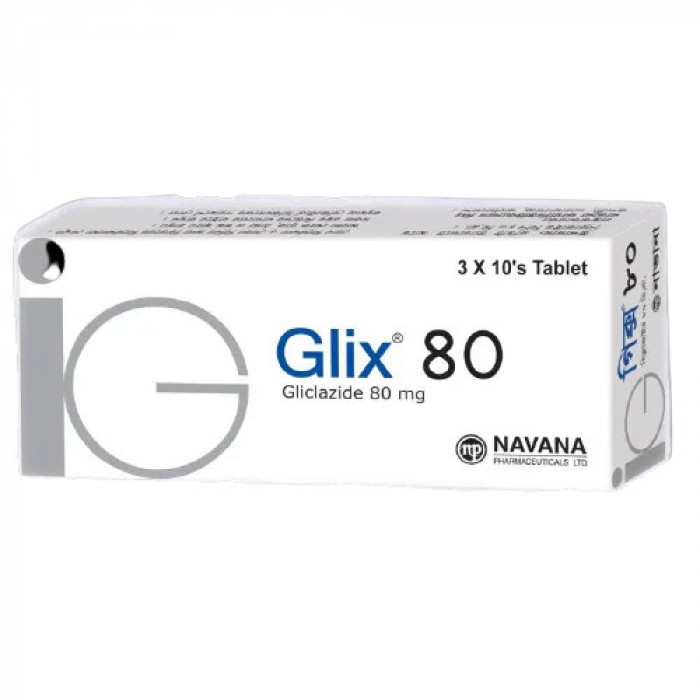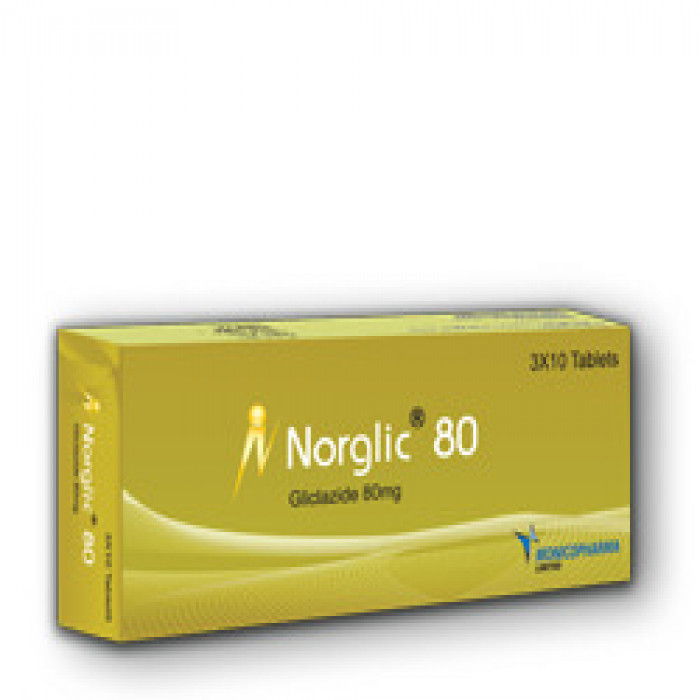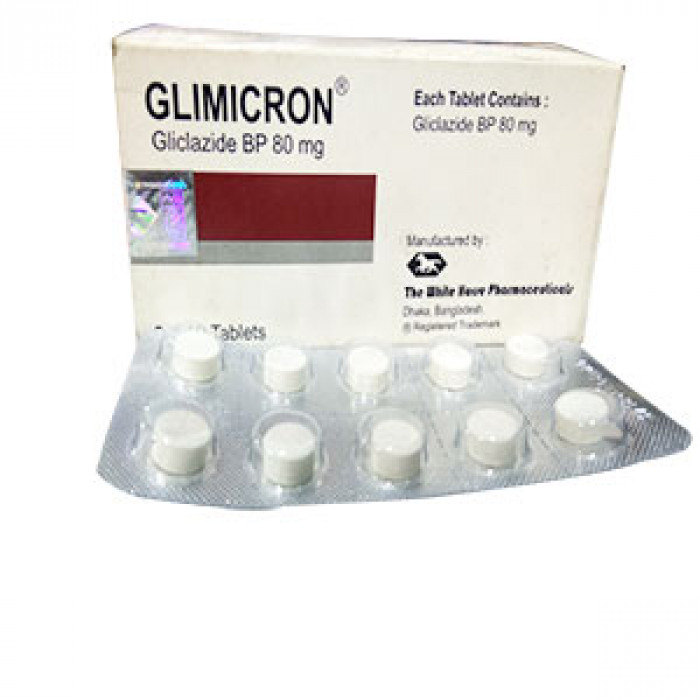
✔ 100% Authentic Product
👁️ Currently Viewing 1780
Tablet
Manufacturer/Distributor: White Horse Pharma
Generic Name: Gliclazide 80 mg Tablet
Discount
Price: ৳ 67
MRP:
৳
70
5%
Off

100% Genuine Products, Guaranteed

Safe & Secure Payments, Always

Fast, Secure & Efficient Delivery

Proper Packaging
 Cash on Delivery - All over Bangladesh
Cash on Delivery - All over Bangladesh Regular Delivery - 12-24 Hours, Dhaka City* Charge Tk.39-59
Regular Delivery - 12-24 Hours, Dhaka City* Charge Tk.39-59 Regular Delivery - 24-48 Hours, Other Cities* Charge Tk.99-110
Regular Delivery - 24-48 Hours, Other Cities* Charge Tk.99-110
🌙 রমযান অফার 🌙
 ফ্রি ডেলিভারিঃ - ৭৯৯ টাকা+ অর্ডারে, ঢাকা
শহরে
ফ্রি ডেলিভারিঃ - ৭৯৯ টাকা+ অর্ডারে, ঢাকা
শহরে ফ্রি ডেলিভারিঃ - ২৭৯৯ টাকা+ অর্ডারে, ঢাকার
বাহিরে
ফ্রি ডেলিভারিঃ - ২৭৯৯ টাকা+ অর্ডারে, ঢাকার
বাহিরে
📲 মোবাইল অ্যাপ অর্ডারে সাশ্রয় বেশী
-
Google Play Store থেকে ডাউনলোড
-
Apple Store থেকে ডাউনলোড
100% Genuine Products, Guaranteed
Safe & Secure Payments, Always
Fast, Secure & Efficient Delivery
Proper Packaging
 Cash on Delivery - All over Bangladesh
Cash on Delivery - All over Bangladesh Regular Delivery - 12-24 Hours, Dhaka City* Charge Tk.39-59
Regular Delivery - 12-24 Hours, Dhaka City* Charge Tk.39-59 Regular Delivery - 24-48 Hours, Other Cities* Charge Tk.99-110
Regular Delivery - 24-48 Hours, Other Cities* Charge Tk.99-110 ফ্রি ডেলিভারিঃ - ৭৯৯ টাকা+ অর্ডারে, ঢাকা
শহরে
ফ্রি ডেলিভারিঃ - ৭৯৯ টাকা+ অর্ডারে, ঢাকা
শহরে ফ্রি ডেলিভারিঃ - ২৭৯৯ টাকা+ অর্ডারে, ঢাকার
বাহিরে
ফ্রি ডেলিভারিঃ - ২৭৯৯ টাকা+ অর্ডারে, ঢাকার
বাহিরে- Google Play Store থেকে ডাউনলোড
- Apple Store থেকে ডাউনলোড
🌙 রমযান অফার 🌙
📲 মোবাইল অ্যাপ অর্ডারে সাশ্রয় বেশী
✅ Description:
Glimicron 80 is a medicine used to treat type 2 diabetes mellitus in adults. It belongs to a group of medicines called sulfonylureas and helps control blood sugar levels in people with diabetes. This helps to prevent serious complications of diabetes like kidney damage and blindness. Glimicron 80 may be used by itself or along with other medicines. It should be taken with food. Take it regularly at the same time each day to get the most benefit. Your doctor will decide what dose is best for you and this may change from time to time according to how it is working. Keep taking this medicine, even if you feel well or your blood sugar levels are controlled. If you stop it without consulting your doctor, your blood sugar levels could rise and put you at risk of kidney damage, blindness, nerve problems and loss of limbs. Remember that it is only part of a treatment program that should also include a healthy diet, regular exercise, and weight reduction as advised by your doctor. Your lifestyle plays a big part in controlling diabetes. The most common side effects of taking this medicine include indigestion and stomach upsets. It can also cause low blood glucose levels (hypoglycemia). Make sure you recognize the signs of having low blood glucose levels, such as sweating, dizziness, headache, and shaking and know how to deal with it. To prevent this, it's important to have regular meals and always carry a fast-acting source of glucose such as sugary food or fruit juice with you. Drinking alcohol can also increase your risk of low blood sugar levels and should be avoided. Some people may find that they put on weight with this medicine. You should not take it if you have type 1 diabetes mellitus, if you have diabetic ketoacidosis (high levels of acid in your blood), or if you have severe kidney or liver disease. Before taking this medicine, tell your doctor if you have ever had heart disease, thyroid disease or some hormonal conditions. It may not be suitable. Pregnant or breastfeeding women should also consult their doctor before taking it. Your blood sugar levels should be checked regularly and your doctor may also advise blood tests to monitor your blood cell counts and liver function.
Uses of Glimicron 80
- Type 2 diabetes mellitus
Side effects of Glimicron 80
Common
- Upset stomach
- Indigestion
How to use Glimicron 80
Take this medicine in the dose and duration as advised by your doctor. Swallow it as a whole. Do not chew, crush or break it. Glimicron 80 is to be taken with food.
How Glimicron 80 works
is an antidiabetic medication. It works by increasing the amount of insulin released by the pancreas in order to lower the blood sugar levels.
What if you forget to take Glimicron 80?
You should skip a dose of Glimicron 80 if a meal is skipped, and add a dose of medicine if you eat an extra meal.
Quick Tips
- Take it shortly before or with the first main meal of the day (usually breakfast). Avoid skipping meals.
- Be careful while driving or operating machinery until you know how Diamicron XR 60 Tablet affects you.
- It can cause hypoglycemia (low blood sugar level) when used with other antidiabetic medicines, alcohol or if you delay or miss a meal.
- Always carry some sugary food or fruit juice with you in case you experience hypoglycemic symptoms such as cold sweats, cool pale skin, tremor and anxiety.
- Your doctor may check your liver function regularly. Inform your doctor if you develop symptoms, such as abdominal pain, loss of appetite, or yellowing of the eyes or skin (jaundice).
Brief Description
Indication
Type 2 DM
Administration
Should be taken 30 mintues before meal or with meal.
Adult Dose
Oral Type 2 diabetes mellitus Adult: Initially, 40-80 mg daily gradually increased to 320 mg daily if necessary. Doses >160 mg daily are given in 2 divided doses. Modified-release tab: Initially, 30 mg once daily, may increase in increments of 30 mg up to max 120 mg daily. Interval between doses should be at least 1 mth. For non-respondent patients, dose may be increased after 2 wk.
Contraindication
Type 1 DM, diabetes complicated with ketoacidosis; hypersensitivity; severe renal and hepatic impairment. Pregnancy and lactation.
Mode of Action
Gliclazide stimulates insulin secretion from pancreatic beta-cells, reduces insulin uptake and glucose output by the liver, and increases insulin sensitivity at peripheral target sites. It decreases microthrombosis by partial inhibition of platelet aggregation and adhesion, and by restoring fibrinolysis w/ an increase in tissue plasminogen activator (t-PA) activity.
Precaution
Monitor blood glucose concentration. May require insulin during metabolic stress. Care when transferring from combination therapy. Increased risk of severe hypoglycaemia in elderly, debilitated patients, patients with hepatic or renal impairment. Risk of hypogylcaemia when caloric intake is deficient, after strenuous exercise, when taken with ethanol or when >1 antidiabetic drug is used.
Side Effect
GI disturbances, skin reaction, leucopenia, thrombocytopenia, agranulocytosis, haemolytic anaemia, cholestatic jaundice, vomiting, diarrhoea, gastritis, increased transaminases.
Interaction
May increase hypoglycaemic effect w/ phenylbutazone. Potentiation of blood glucose lowering effect w/ other antidiabetics (e.g. acarbose, insulins, metformin), beta-blockers, ACE inhibitors, H2-receptor antagonists, MAOIs, sulfonamides, clarithromycin and NSAIDs. Chlorpromazine, glucocorticoids, ritodrine, salbutamol and terbutaline may cause increases in blood glucose levels. May diminish hypoglycaemic effect w/ danazol. May increase anticoagulant effect of warfarin. Potentially Fatal: Increased hypoglycaemic effect w/ miconazole
⚠️Disclaimer:
At ePharma, we’re committed to providing accurate and accessible health information. However, all content is intended for informational purposes only and should not replace medical advice from a qualified physician. Please consult your healthcare provider for personalized guidance. We aim to support, not substitute, the doctor-patient relationship.




